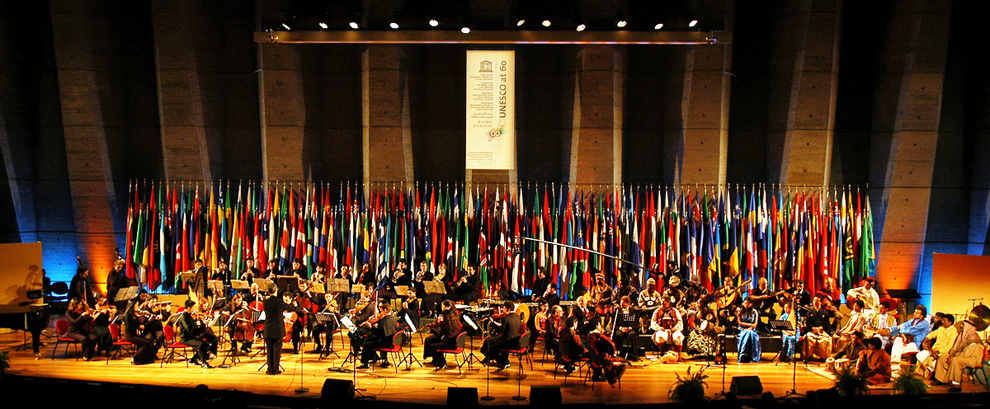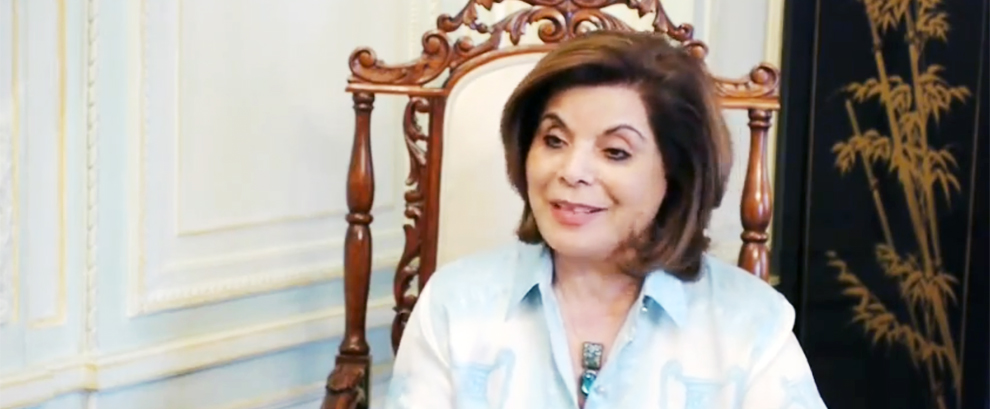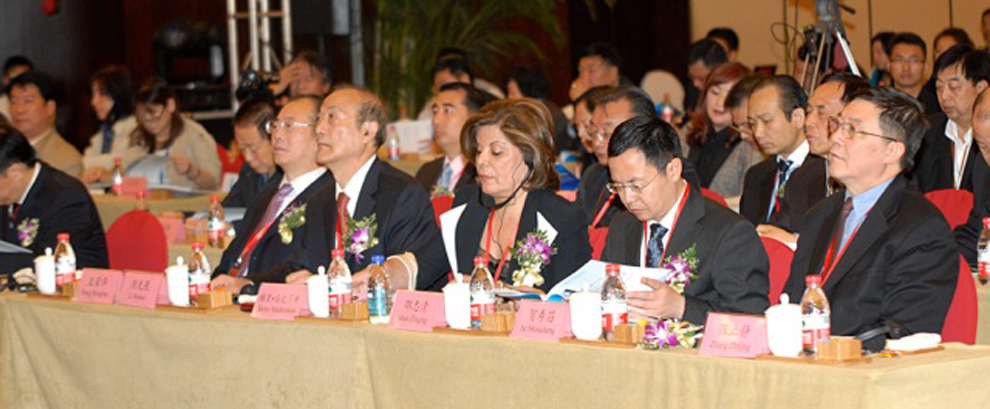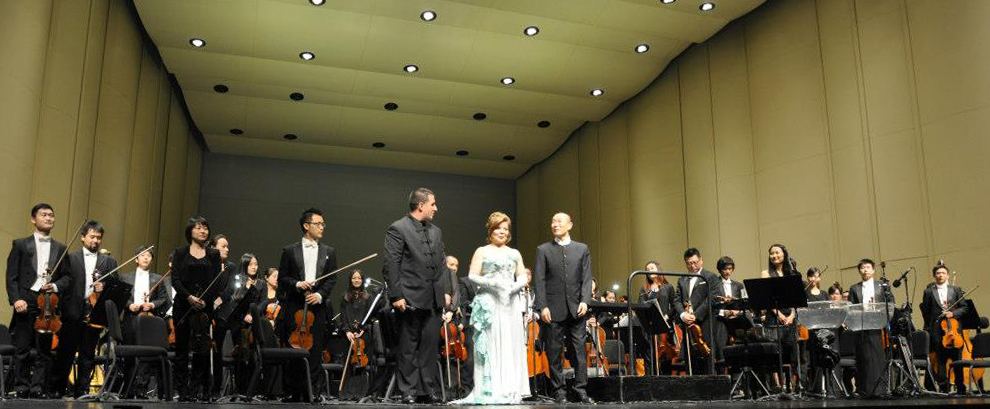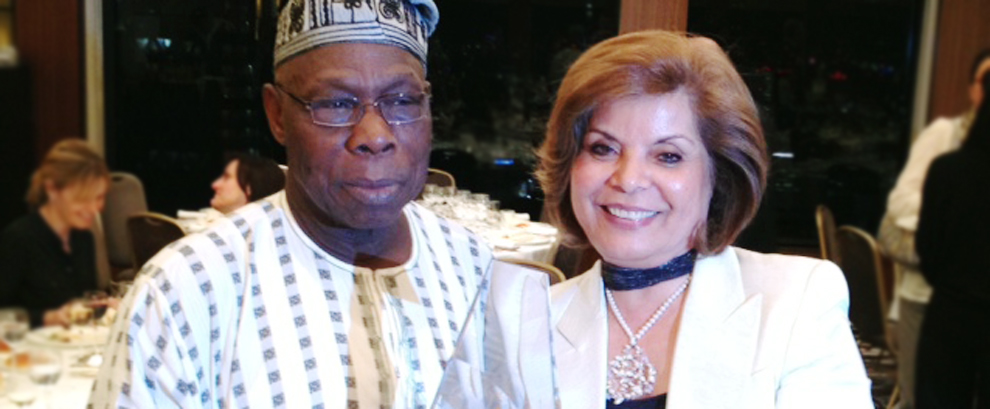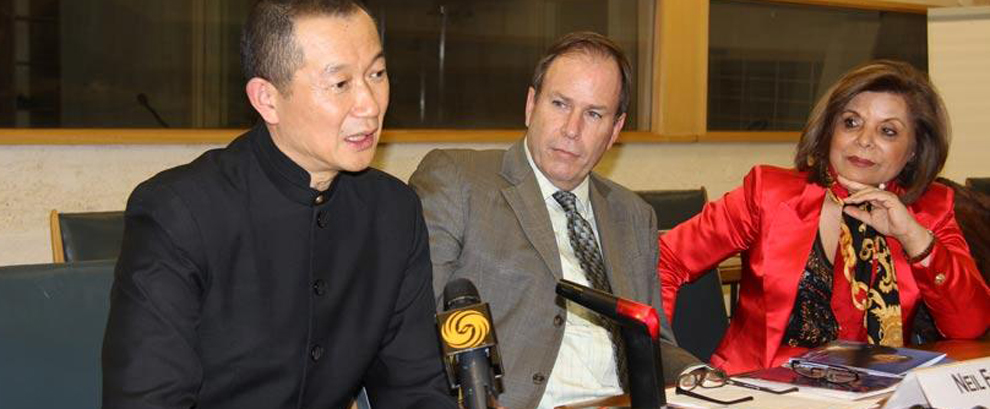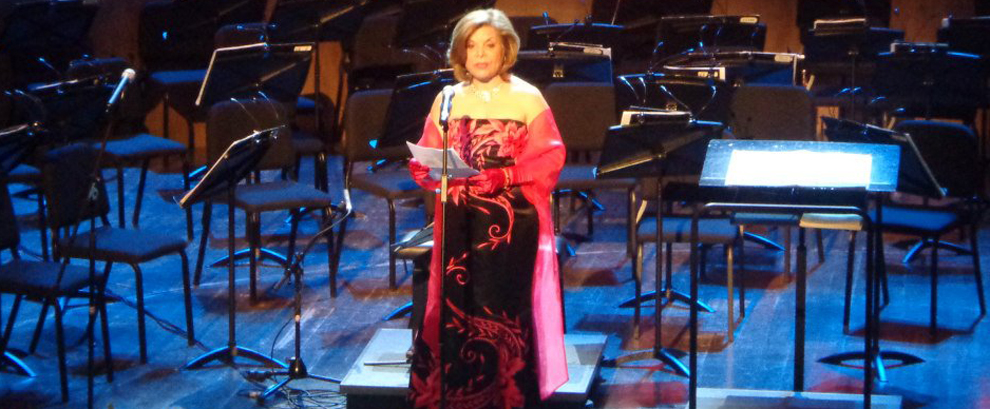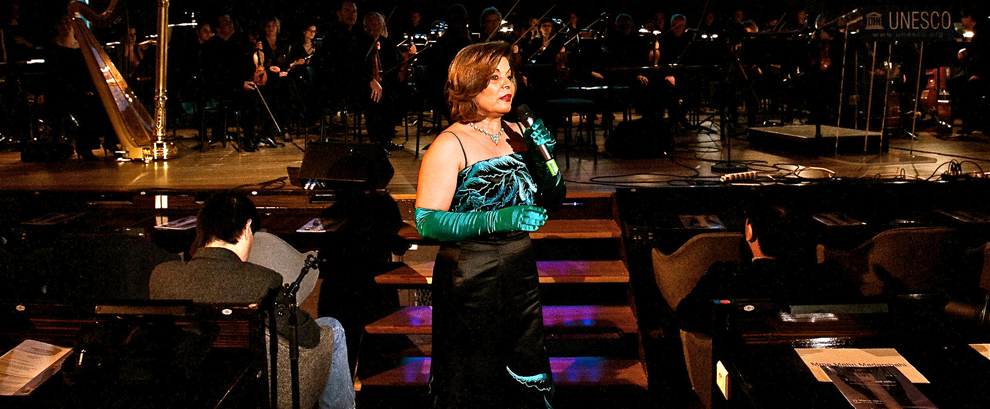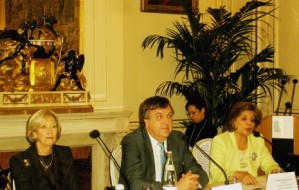
ASPEN CULTURAL DIPLOMACY FORUM 2008
November 13 – 15, 2008
Cercle de l’Union Interalliée
33, rue du Faubourg St. Honoré, Paris, France
Presented by Mehri Madarshahi
DOWNLOAD PDF
Excellencies,
Ladies and Gentlemen,
Dear friends
It is a great honor and pleasure for me to welcome you all to this extraordinary forum. At the outset, let me make a confession. During my 26 years of economic and political work at the United Nations, it never occurred to me that one day I would promote music as a powerful and unique tool of diplomacy to create peace, to resolve conflict, to promote cultural diversities and in all, a model for social engagement.
It is nevertheless highly rewarding to observe the immediate and tangible result of this experimentation. The Association that I preside over has promoted multicultural dialogues through music as a new and innovative means of communications. We are great believers that music has no boarder and is inclusive by its nature. Through various concerts, we have provided a major breakthrough in mutual understanding among people who share respect for universal values and can help in creating culture of peace among global community. To that end, the Association since its inception has chosen a practical approach to peace and harmony by organizing major multi-cultural concerts and has produced written literature and recordings of its events to facilitate further transmission of its messages worldwide. In the course of the past 3 years we have engaged over 412 international musicians from 72 countries who, while each were a treasure in their own locality, but isolated and deprived of a chance to share their talents and to enhance their knowledge of music with others. The Association by bringing these individuals together and by exposing their rare and not well-known musical instruments, has helped create important binds among humanity, and provided a fertile ground for new learning. These programs were to promote a genuine dialogue, based on respect for shared values and dignity of each civilization and culture through its melodies and music.
In furthering its message of tolerance and respect for cultural diversity and peaceful coexistence through music, the Association was approached to produce a number of concerts in celebration of the 60th anniversary of UNESCO. Director-General Koichiro Matsuura mentioned “The unique concerts presented by the Association Melody for Dialogue among Civilizations represented an innovative and exciting approach in several ways:
“First of all, the musical performances involve the live interaction between traditional instruments and musicians from different cultures, in this way emphasizing that dialogue goes beyond words and can thrive also in the realm of music.
“Furthermore, the resort to common musical themes and melodies in this joint performance by a classical orchestra and musicians playing traditional and contemporary instruments highlights a novel dimension of artistic creativity and engagement that is rarely seen and heard.
“And lastly, these concerts give practical expression to a hallmark of UNESCO’s Constitution, namely international cooperation. The dialogue between traditional, classical and contemporary music epitomizes the very essence of international cooperation in a field that was not often singled out in this context,” (Video)
We also celebrated the UN Decade for Culture of Peace in the Lincoln Center/Ny and paid tribute to African and Latin American musical culture in Nigeria and Cuba. Year 2009 will provide a unique opportunity to introduce music as a vector for environmental awareness and economic and social development.
Our dream is to connect and inspire core human values through musical dialogue. Is this only a dream? Further analysis of the on-going trends may prove that this dream could lead to a hard core reality if we only learn how to peruse and apply vigorously lessons learnt and ensure to create models for social and cultural engagements by utilizing the medium of music as an accompanying force for political change. As echoed by Kim Campbell, former Prime Minister of Canada, that “track II diplomatic efforts require not only dialogue but unique means such as the art and music to foster understanding, open communication, and successful diplomacy”.
Music stirs the most elemental passions. It has roused men to battle, celebrated victories, anointed kings and accompanied the dead into the grave. Sweeping historical events has inspired some of the greatest music: Beethoven was deeply influenced by Napoleon’s victories. The harshly harmonious sounds of Dmitri Shostakovich’s Seventh Symphony “Linngrad” performed by Gergiev in South Ossetia’s capital last August rewarded resistance and Yehudi Menuhin’s concerts for Belsen’s victims after the Second World War symbolized a long tradition of musicians who have championed causes in which they believed. These models could stimulate fresh thinking in the corridors of power by ripping down the barriers that exist between how we think of culture and politics as separate entities.
Music also provided models for social and cultural transformations. NY philharmonics playing in Pyongyang and the Chinese conductor Yu Long have tried to break diplomatic ice. . Maestro Yu, founder of the CPO and the Beijing Music Festival (BMF) and essentially a one-man epicenter of China’s classical music scene, has long blurred the line between politics and religion. For Mozart’s 250th birthday in 2006, Yu organized the first public concert in a Chinese cathedral. In the same venue a year later, he played Mozart’s “Requiem,” arguably the most religious work ever written. Yu is quick to deny any political obstacles, but observers applauded the nod toward the “spiritual side” of music.
Music’s ability to cross cultural barriers could be exemplified by the LiveAid concerts held in 1985 bringing together a television audience of over 1. 5 billion in over 100 countries. Rostropovich used his cello as a beacon of freedom, playing at the Berlin Wall. And who can forget the emotional triumph of Bernstein conducting Beethoven’s Ode to Joy amid the wreckage of the Wall?
Music could also be an element of political influence. Hip hop stars Chingy, Q and MC Lyte joined forces with two time Rock and Roll Hall of fame singer-songwriter Graham Nash, in an innovative “get-out-the-vote” leveraging the power of social networks. On Nov 4, music fans that signed up for “Be the Change” received an automated call from the musician of their choice to remind them to go to the polls. A selected number of voters received calls from the musicians themselves.
Despite these examples, the question remains: To what extent the artists and activists are the agents of socio-political change?
Bono and Bob Geldof the initiators of Live Aid presented a petition with some 38 million signatures in support of Africa to the G8 on the eve of Gleneagles meeting. At the time, people roared, and the leaders of the rich world had merely whispered. In the process, tremendous momentum was built up in the United Kingdom with aid agencies, churches, trade unionists, student groups and others creating an impressive coalition demanding action. In England,Tony Blair and Gordon Brown conceded, but the trouble was elsewhere. Campaign groups in France, Germany, Japan and – most crucially – the United States were nowhere near as influential. Though Blair and Brown were, for the first time, really pushing Africa’s case at the top table, the rest of the world’s leaders felt they could safely ignore them. At the Summit, they only accepted endorsing 50 of the 980 recommendations made by the Commission for Africa. Was that a dramatic step forward? Yes, but Pledges of “education for all” went unfunded, so have commitments to HIV and Aids , trade in small arms and debt forgiveness schemes that were all hedged. Despite these, without the spur of campaigners and artists little would have happened. The Live Aid aroused the conscience of a new generation. The question to you is how such efforts could be sustained and become sustainable?
Today, I am a great believer that the language of music has a momentum of its own and it has an inner driving force that is ageless. That is why the formalized language of music for diplomacy is more needed now than ever before. How can we reach at a level of understanding among people and our politicians that can eventually lead to a better world? Let’s explore these further,


